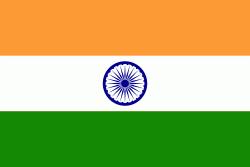Tarn Taran Sahib (Tarn Tāran)
Tarn Taran Sahib is a city in the Majha region of the state of Punjab, in northern India. It is the district headquarters and hosts the municipal council of Tarn Taran district. Gurdwara Sri Tarn Taran Sahib, a prominent Sikh shrine is located in the central part of the city.
Tarn Taran Sahib was founded by the Fifth Sikh Guru, Shri Guru Arjan Dev Ji (1563–1606). He was so enchanted by its natural beauty that he established a town and named it Tarn Taran, the boat to cross the ocean of existence and to enjoy the blessings of almighty God. He laid the foundation of Sri Tarn Taran Sahib Temple. Tarn Taran Sahib was part of the Bhangi Sikh Dynasty ruled by a powerful Jatt family of the Dhillon Clan from 1716 to 1810.
In 1947, the year of the Partition of India and the Partition of Punjab, Tarn Taran was the only tehsil (district) in Punjab, along with Shiekhupura, Ludhiana, Jalandhar, Hoshiapur, Kapurthala, Patti, Amritsar, Lyallpur, and Patiala, with a majority Sikh population. The city was the center of the Sikh insurgency during the 1980s and early 1990s. The main occupation in this area is agriculture and agroindustry, with very few other industries.
Tarn Taran district was formed in 2006. The declaration to this effect was made by Captain Amarinder Singh, Chief Minister of Punjab, during the celebrations marking the martyrdom day of Sri Guru Arjan Dev Ji. With this, it became the 19th district of Punjab.
Tarn Taran Sahib was founded by the Fifth Sikh Guru, Shri Guru Arjan Dev Ji (1563–1606). He was so enchanted by its natural beauty that he established a town and named it Tarn Taran, the boat to cross the ocean of existence and to enjoy the blessings of almighty God. He laid the foundation of Sri Tarn Taran Sahib Temple. Tarn Taran Sahib was part of the Bhangi Sikh Dynasty ruled by a powerful Jatt family of the Dhillon Clan from 1716 to 1810.
In 1947, the year of the Partition of India and the Partition of Punjab, Tarn Taran was the only tehsil (district) in Punjab, along with Shiekhupura, Ludhiana, Jalandhar, Hoshiapur, Kapurthala, Patti, Amritsar, Lyallpur, and Patiala, with a majority Sikh population. The city was the center of the Sikh insurgency during the 1980s and early 1990s. The main occupation in this area is agriculture and agroindustry, with very few other industries.
Tarn Taran district was formed in 2006. The declaration to this effect was made by Captain Amarinder Singh, Chief Minister of Punjab, during the celebrations marking the martyrdom day of Sri Guru Arjan Dev Ji. With this, it became the 19th district of Punjab.
Map - Tarn Taran Sahib (Tarn Tāran)
Map
Country - India
 |
 |
| Flag of India | |
Modern humans arrived on the Indian subcontinent from Africa no later than 55,000 years ago. Their long occupation, initially in varying forms of isolation as hunter-gatherers, has made the region highly diverse, second only to Africa in human genetic diversity. Settled life emerged on the subcontinent in the western margins of the Indus river basin 9,000 years ago, evolving gradually into the Indus Valley Civilisation of the third millennium BCE. By, an archaic form of Sanskrit, an Indo-European language, had diffused into India from the northwest. (a) (b) (c), "In Punjab, a dry region with grasslands watered by five rivers (hence ‘panch’ and ‘ab’) draining the western Himalayas, one prehistoric culture left no material remains, but some of its ritual texts were preserved orally over the millennia. The culture is called Aryan, and evidence in its texts indicates that it spread slowly south-east, following the course of the Yamuna and Ganga Rivers. Its elite called itself Arya (pure) and distinguished themselves sharply from others. Aryans led kin groups organized as nomadic horse-herding tribes. Their ritual texts are called Vedas, composed in Sanskrit. Vedic Sanskrit is recorded only in hymns that were part of Vedic rituals to Aryan gods. To be Aryan apparently meant to belong to the elite among pastoral tribes. Texts that record Aryan culture are not precisely datable, but they seem to begin around 1200 BCE with four collections of Vedic hymns (Rg, Sama, Yajur, and Artharva)."
Currency / Language
| ISO | Currency | Symbol | Significant figures |
|---|---|---|---|
| INR | Indian rupee | ₹ | 2 |
| ISO | Language |
|---|---|
| AS | Assamese language |
| BN | Bengali language |
| BH | Bihari languages |
| EN | English language |
| GU | Gujarati language |
| HI | Hindi |
| KN | Kannada language |
| ML | Malayalam language |
| MR | Marathi language |
| OR | Oriya language |
| PA | Panjabi language |
| TA | Tamil language |
| TE | Telugu language |
| UR | Urdu |















